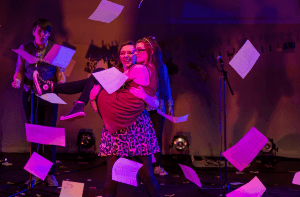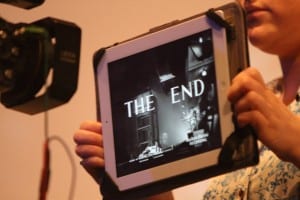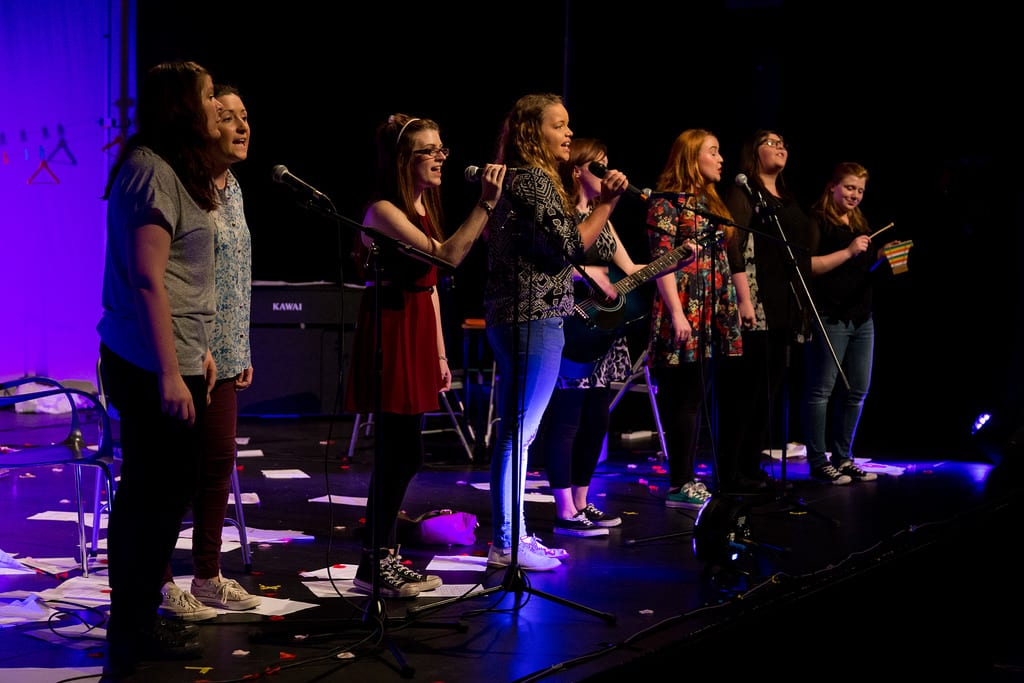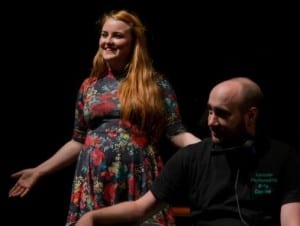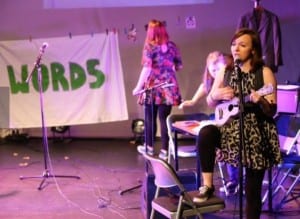So, we did it. ‘Three Words’ made it to the stage… and it’s honestly taken me almost an entire week to come down from the incredible high that evening gave me, and truly take in how it went.
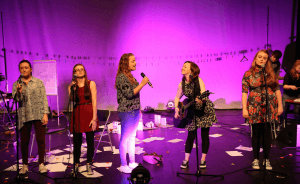
As Gabby said in her blog, the response from the audience was truly astounding. I had spent so much time meticulously over analysing tiny flaws and mistakes in recent weeks, wanting the show to be the best it could be, that I think I had forgotten to truly take in and appreciate what we did have and how an audience might take it. However, as the show opened that night and the audience began laughing in the very first song, I finally started to realise – oh, we have something here. We have a very decent show. And performing it was really like no other experience I had had before.
Again, leading up until the performance I was thinking and worrying constantly about the musical side of my performance, especially playing instruments, as it’s not something I had a great deal of experience with before this show, and, as such, I wasn’t overly confident. However, being out there, I honestly was having so much fun, I almost completely let go of my nerves, for the first time in any performance I’ve done.
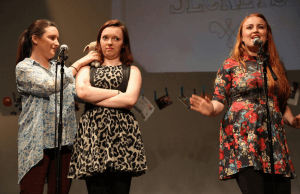
Being on the stage for 100% of the show was a huge part of what made this such a different experience for me, performance wise. Being fully immersed in the show throughout, there was no time to come off stage, come out of character and let the nerves take over again about the next scene. In my head, it all just flowed. And it really added to the feeling of team work and camaraderie between the company. We were all on stage, together, supporting each other, working together, throughout the show, and that really added to just how enjoyable and engaging performing it was. Of course, it being the debut performance, there were hitches; technical glitches and a few little performance mistakes. But nothing massive, and I do think we covered any mistakes from the audience well. Of course, those mistakes and glitches are also things we can learn from for any future performances… as quite a few people have mentioned in their blogs, we certainly don’t want this to be the end for No Added Sugar, or ‘Three Words’ itself, and it doesn’t look like it will be. Watch this space!
I always love the shows I am part of, but I have honestly never loved every minute of a performance as much as I loved being part of ‘Three Words’ that night. Furthermore, I am not exaggerating when I say that the process of creating this show has been the most inspiring, rewarding, professional and educational devising process I have ever taken part in. I have pushed myself out of my comfort zone, including performing as myself (something I have previously been reluctant about) as opposed to a character, trying out new performance disciplines (like different kinds of puppetry) and going from being able to play about three chords on guitar very slowly to playing a full song or two in front of an audience. I could not be more glad of every decision we made that pushed me. Even if, by some awfully unfortunate circumstances, No Added Sugar does have to end here, I am taking away so much from this process and from this performance; so many memories, connections with wise, talented people, lessons in performing, lessons in music, and lessons in life… and love.
